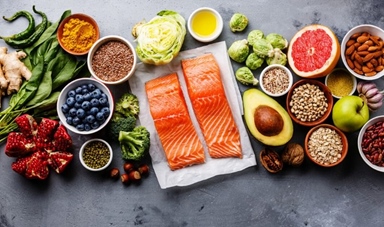Loading component...
At a glance
It’s been called the biggest global crisis for three generations.
Coronavirus has changed the way we operate in the world and, in many cases, has impacted our livelihood.
Many workers have experienced joblessness for the first time, self-isolation is close to mandatory, and people everywhere face very real health threats.
In addition to that, our professional and personal self-esteem is under threat from our belief in the idea that success, in today’s world, means achieving in our careers, says NSW psychotherapist Shirley Hughes.
Now we’re stuck at home, telecommuting if we’re lucky or, if we’ve lost our job, relying on savings and credit cards, or waiting for support from Centrelink.
“There is, however, more than one way to be successful in life,” says Hughes. “And it’s those ways in which we need to demonstrate competency now.”
Crucial to our mental health and our self-esteem is finding other challenges and joys while we navigate COVID-19.
“The silver lining of coronavirus is that many of us have the time and opportunity to focus on what we really value about life,” says Hughes.
Thriving, not just surviving
Those in crisis management say the results of what we are going through can already be seen in impacts on mental health.
Preoccupation with coronavirus is increasing anxiety, stress and worry, while putting normal social lives on hold has placed many at risk of loneliness, or depression.
Financial concerns also weigh heavily on our minds as, for many, outgoings now exceed income.
Psychotherapist Debbie Swibel, of Mental Health Management, says resilience is key to surviving and thriving for what looks likely to be a lengthy period of restrictions and fallout.
“Life has changed for now and we can’t strive for what was, or look back, because we will never be happy or satisfied,” she says.
“The future is somewhat underknown, but the past is the past and we need to keep mentally and physically strong for a brave new world.”
Swibel, who works with corporates, suggests we acknowledge whatever changes have come, and put strategies in place to work through them, just as we would implement a step-by-step business plan.
Both she and Hughes also suggest setting small, achievable goals, such as eating more healthily, upskilling with a micro-credential, listening to a podcast or even connecting with more friends using Skype, Facetime or Zoom.
Achieving even one goal can boost our confidence and sense of self efficacy, she says.
While anecdotal evidence suggests that sales of alcohol and junk food are both booming, it’s smarter to reduce intake of both and stick to a nutritious diet, says Swibel.
Alcohol can be a depressant and processed foods can erode immunity.
Setting a daily routine, planning fun activities and staying active are other mental health boosters suggested by health services during the coronavirus crisis.
“Counselling services such as Lifeline are also useful, as is psychotherapy,” says Swibel. “Even talking to a friend is better than trying to deal with everything by yourself.”
A different playing field
Today financial practitioners may be dealing with panic; in the future, clients may reorder their priorities to include a less-driven approach, believes financial adviser Helen Baker, author of On Your Own Two Feet.
“We’ve been on this push trajectory that is always about achieving higher targets,” she says.
“Businesses may question the human cost of that, as well as the size of top salaries.”
Australians themselves may start to wonder whether they really need the big house, or the big mortgage, says Baker, who recently talked to Virgin staff about the government stimulus.
She says financial strategies that include a diversification of assets, as well as ensuring liquidity of some, will become even more important as clients exercise more caution in their financial affairs.
Keep calm and carry on
Making time to relax deeply can improve our heart and lung function, enhance our immune response, and boost brain function.
Relaxation floods our body with feelgood neurotransmitters like dopamine and serotonin, while reducing the impact of the stress hormone cortisol.
Contrary to popular belief, deep relaxation isn’t streaming Netflix. To get real value out of relaxation, you need to focus on it.
Try an app like Calm, or Headspace, that uses guided meditations.
For other suggestions about how to go from stressed to relaxed, medical doctor, researcher and holistic health expert Dr Marc Cohen has shared his ideas here.
“Each activity has a link to the scientific evidence behind it, with a preference for current evidence and high-level systematic reviews,” he says.

